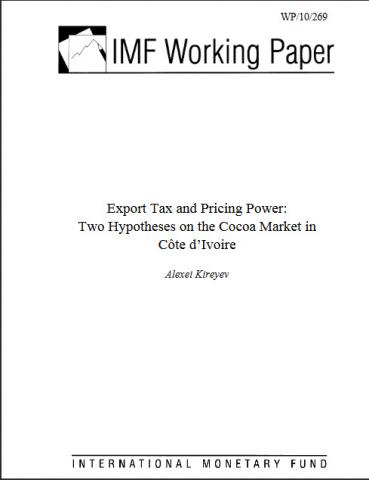Export Tax and Pricing Power: Two Hypotheses on the Cocoa Market in Côte d’Ivoire
The paper models export taxation of a primary commodity in a large country under two hypotheses about the structure of its export market. The first is perfect competition among exporters, where there is an indefinite number of buyers of the local product and at least a partial pass-through of international prices to local producers. The second is an oligopsony, a market structure in some low-income countries where numerous scattered local producers face a few powerful exporters that can influence domestic prices. For both hypotheses, export taxation can be justified on efficiency grounds only for the country that adopts the tax. Designed correctly, a low export tax may be welfare-enhancing for that country but will always be welfare-reducing for its trading partners. The models of export taxation for both hypotheses are calibrated for the illustrative case of cocoa exports from Côte d’Ivoire.





